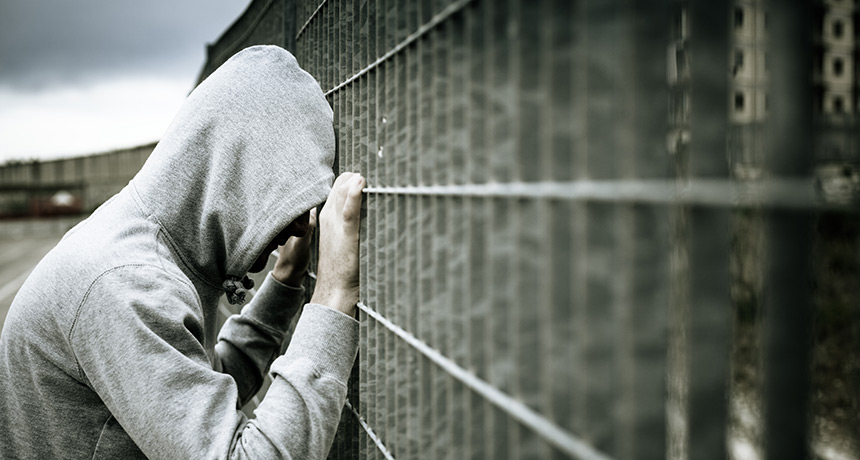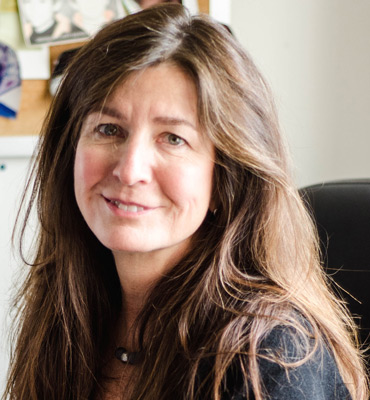A cognitive neuroscientist warns that the U.S. justice system harms teen brains
Skills like resisting peer pressure and avoiding risk may not develop until a person’s 20s

LOCKED UP Adolescents caught in the U.S. justice system can be subject to conditions that interfere with their healthy brain development.
zodebala/iStock/Getty Images Plus
- More than 2 years ago
A teenager’s brain does not magically mature into its reasoned, adult form the night before his or her 18th birthday. Instead, aspects of brain development stretch into a person’s 20s — a protracted fine-tuning with serious implications for young people caught in the U.S. justice system, argues cognitive neuroscientist B.J. Casey of Yale University.
In the May 22 Neuron, Casey describes the heartbreaking case of Kalief Browder, sent at age 16 to Rikers Island correctional facility in New York City after being accused of stealing a backpack. Unable to come up with the $3,000 bail, Browder spent three years in the violent jail before his case was ultimately dropped. About two-thirds of his time in custody was spent in solitary confinement — “a terrible place for a child to have to grow up,” Casey says.
Two years after his 2013 release, Browder died from suicide.
Casey uses the case to highlight how the criminal justice system — and the accompanying violence, stress and isolation (SN: 12/8/18, p. 11) that come with being incarcerated — can interfere with brain development in adolescents and children. Other recent stories of immigrant children being separated from their families and held in detention centers have raised similar concerns (SN Online: 6/20/18).

The United States holds an estimated 53,000 youths under 18 in jails, prisons or other types of facilities away from home. Because some states have no minimum age at which a child can be tried as an adult for some crimes, many youths are judged and punished by laws designed for people more mature.
In brain development, the boundary between childhood and adulthood is wide and fuzzy. The brain’s coming of age depends on what neural network or process is being measured. Some abilities, such as being able to remember a string of numbers or come up with words starting with a certain letter, are mature by age 18. Other skills, such as the ability to resist peer pressure, make good decisions under stress and avoid risks, are still developing and changing in people’s 20s, research suggests.
The fact that youths’ brains are still developing can become obvious during interactions with law enforcement. Young people don’t necessarily understand their rights, and will sometimes run away or say the wrong thing when cornered, Casey says. “Kids are reactive under threat,” she says. “How would they know to ask for a lawyer?”
Young people should be held accountable for their actions, “but a diminished accountability,” Casey suggests. Some states such as California, Nebraska and New York have recognized young adults as a group that requires special considerations, for example by creating young adult courts that dole out punishments that focus on rehabilitation. “Working together, we may be able to save young people like Kalief from the injustices that too often occur within the confines of our justice system,” Casey writes.
If you or someone you care about may be at risk of suicide, call the National Suicide Prevention Lifeline, a free, 24/7 service that offers support, information and local resources: 1-800-273-TALK (8255).







